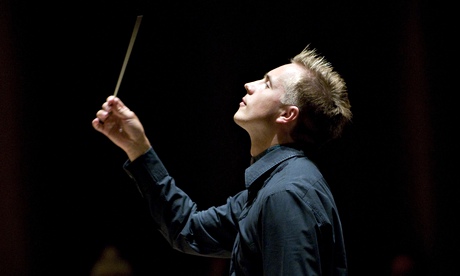
With Philharmonic Hall closed for refurbishment until next month, the Royal Liverpool Philharmonic opened its new season in the city’s Anglican cathedral with a concert that would have made a greater impact had it not been for the building’s notorious echo. Of the four works on the programme, only Vaughan Williams’s Serenade to Music, in its choral version, suited the space, where its slowly unfolding progressions sounded sensuous in the reverberation. Elsewhere, despite fine conducting from Vasily Petrenko and admirably committed playing and singing from the RLPO and its choir, the acoustic got in the way.
Petrenko is an impeccable Elgarian, but the Cockaigne Overture was too often subsumed by the blur – some sections were unrecognisable. In Strauss’s Also Sprach Zarathustra, the acoustic was both a help and a hindrance: the opening rumble and fanfares sounded awesome, while the arid scientific fugue and the whirling figurations depicting Zarathustra’s convalescence sounded indistinct. The RLPO’s plush, svelte sound is suited to Strauss. Petrenko conducted with expansive nobility, as if determined to make as much of the work register in the space as possible.
Next year sees the 175th anniversary of the orchestra’s founding, marked by a season-long celebration and a clutch of new commissions, the first of which was Nico Muhly’s Second Service for chorus and orchestra, a through-composed setting of the Magnificat and Nunc Dimittis. Muhly roots the spirituality of each canticle in its personal origins. The Magnificat, with its excited choral lines and percussive, heartbeat-like throbs, celebrates an announcement of pregnancy, while the calm, yet slowly faltering rhythms of the Nunc Dimittis suggest equanimity in the face of death. The closely woven choral writing of the latter is particularly striking: it was beautifully sung, and often touching, despite the echoing blur.

